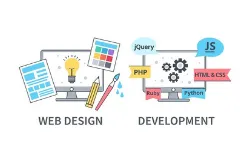How to Choose the Right Job-Oriented Course for Your Career Goals
Choosing the right job-oriented course for your career goals is a crucial decision that requires careful consideration. Here are steps to help you make an informed choice
1 Self-Assessment:
- Start by understanding your interests, skills, strengths, and weaknesses. What are you passionate about? What are you good at? What do you enjoy doing in your free time? Self-assessment can help you identify potential career paths.
2 Set Clear Career Goals:
- Define your long-term and short-term career goals. Knowing where you want to be in the future will guide your course selection. Consider the industries, job roles, and responsibilities you aspire to.
3 Research the Job Market:
- Investigate the job market trends in your region or the region where you plan to work. Look for industries that are growing, in-demand skills, and job opportunities.
4 Identify Skill Gaps:
- Compare your current skills and qualifications with the requirements of your desired job or industry. Identify the gaps that need to be filled through education and training.
5 Consult with Career Counselors or Mentors:
- Seek advice from career counselors, mentors, or professionals in your desired field. They can provide valuable insights, recommend courses, and share their experiences.
6 Explore Different Learning Formats:
- Consider whether you prefer traditional in-person classes, online courses, self-paced learning, or a combination of these. Choose a format that aligns with your learning style and schedule.
7 Accreditation and Reputation:
- Ensure that the course or program you choose is accredited by relevant authorities or recognized by employers in your field. Research the reputation of the institution or training provider.
8 Course Content and Curriculum:
- Review the course content, curriculum, and syllabus. Are the topics covered relevant to your career goals? Will you acquire the skills and knowledge needed for your desired job?
9 Duration and Cost:
- Consider the duration of the course and whether it fits your timeline. Also, evaluate the cost of the course, including tuition fees, materials, and any additional expenses.
10 Job Placement and Internship Opportunities:
- Look for courses that offer job placement services or internship opportunities. Practical experience can be invaluable when entering a new field.
11 Networking Opportunities:
- Courses that provide opportunities for networking with professionals in your industry can be highly beneficial. Building a professional network can open doors to job opportunities.
12 Read Reviews and Get Feedback:
- Search for reviews and testimonials from students who have completed the course. Their feedback can give you insights into the quality of the program.
13 Consider Future Growth and Trends:
- Think about the future of your chosen field. Will the skills you gain remain relevant, or will you need to continually update your knowledge? Choose a course that allows for ongoing learning.
14 Evaluate Return on Investment (ROI):
- Assess the potential return on investment for the course you're considering. Will the salary increase or job prospects justify the cost of the program?
15 Backup Plans:
- Always have backup options in case your first choice doesn't work out. Be prepared to adapt your career plans as needed.
16 Seek Financial Aid or Scholarships:
- Explore financial aid options, scholarships, or grants that can help offset the cost of your chosen course.
17 Take Your Time:
- Don't rush the decision. Take your time to thoroughly research and make an informed choice that aligns with your career goals.
Remember that choosing the right job-oriented course is a significant investment in your future, so it's essential to make a well-informed decision that aligns with your aspirations and opportunities in the job market.
Most Popular Courses
SEO Course || Web desigining & development || Digital Marketing ||Data Analytics








